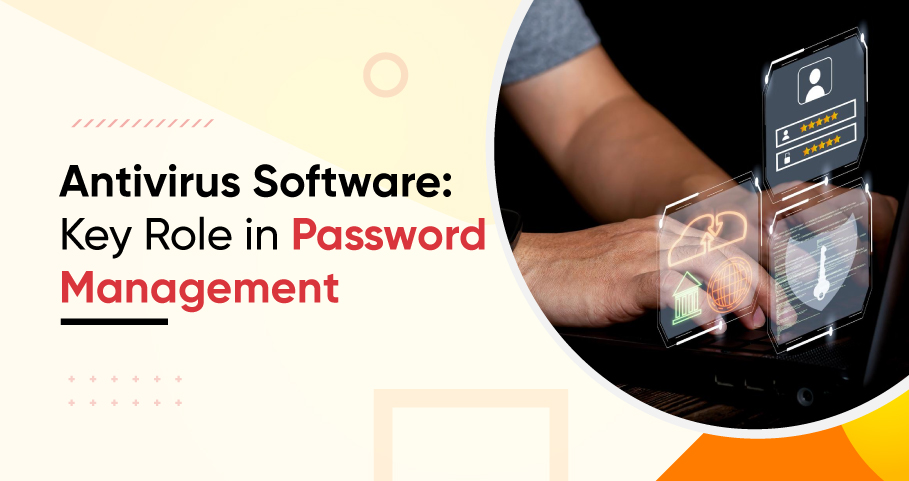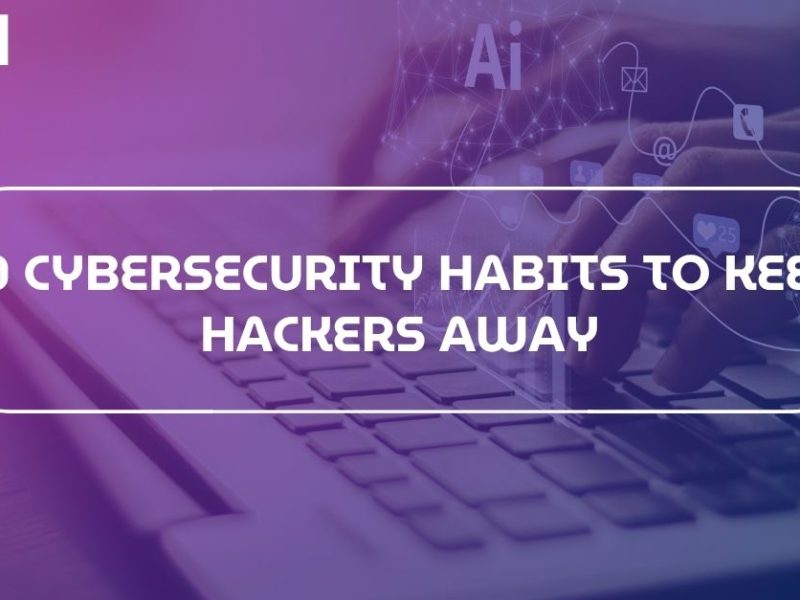
Strengthening Cyber Armor: The Vital Role of Password Management in Antivirus Software for Enhanced Security
Are you still using passwords like ‘12345’ or your ‘first name’ with your ‘date of birth’?
If so, you are in a big mess. It is a ‘No’ big deal for hackers to steal your data from these easy-to-hack passwords.
According to a survey by Nordpass, a password management system from German cybersecurity company Nord Security, ‘Bigbasket,’ ‘12345,’ and ‘12345678’ were among the most common passwords in use in India from 2019 to 2021.
Researchers also found that people tend to keep popular film and show names as their passwords, like ‘Euphoria’ was used 53,993 times, ‘Batman’ 2,562,776 times, and ‘Encanto’ 10,808 times, were globally used as passwords.
As per ET CFO.com, in 2023, 73 percent of Indian firms will be attacked by ransomware.
The number of hacks and cyberattacks is increasing every minute. People are losing their data and money to these cyber attackers making them more vulnerable day by day.
In an era where our lives are intricately interwoven with the digital realm, the significance of safeguarding our virtual existence cannot be overstated. The cyber landscape, however, is fraught with ever-evolving threats that can leave us vulnerable and exposed. It is within this context that the role of antivirus software comes to the forefront, acting as a digital shield against a multitude of threats. One often overlooked but critical aspect that complements antivirus’s protective prowess is password management.
In the digital age, India has seen a consistent increase in data breaches, coinciding with a major increase in cyber assaults during 2022 and 2023.
A recent analysis by Check Point, a prominent provider of cybersecurity solutions, sheds light on the country’s worrisome susceptibility to cyberattacks, indicating an 18% increase in weekly assaults during the first month of 2023.
Internet crime stories abound, but these instances demonstrate the need for online security. These cases show the increasing regularity of cyber dangers that plague India, emphasizing the need for increased vigilance.
- In December 2022, the All India Institute of Medical Sciences (AIIMS) in India experienced a cyberattack, resulting in the encryption of 1.3 terabytes of data across five servers. The incident was classified as a “cyber security incident” due to unauthorized access to the network due to improper network segmentation. The Indian Computer Emergency Response Team (CERT-IN) assessed the situation and recommended measures to address the breach. The Minister of State for Health and Family Welfare revealed that the hackers left a message on the server indicating a cyberattack. After a two-week recovery period, the e-Hospital data was successfully recovered from an untouched backup server, and most program functionality was restored.
- In May 2023, MoChhatua, a local governance app in India, suffered a data breach, according to a hacker on a forum. The app, developed by the regional Department of Women and Child Development in Odisha, aimed to digitize and manage ration supply distribution. The Cyber Express team contacted the Odisha state government for confirmation, but no official response was received. Threat intelligence service Falcon Feeds shared a screenshot of the hacker’s post containing the exposed data and a download link for the stolen information.
- Zivame, an Indian women’s wear platform, suffered a significant data breach, exposing the personal information of around 1.5 million customers. The breach involved their names, email addresses, phone numbers, and physical addresses. An investigation by India Today’s Open Source Intelligence team revealed that a seller claiming to possess the data was willing to sell it for $500 in cryptocurrency. The seller provided a sample dataset containing the personal details of over 1,500 users as proof, insisting on payment exclusively in cryptocurrency, a common practice in such illicit transactions.
- The Cyberabad Police have served notices to over 11 organizations in India regarding a massive data breach that affected 66.9 crore individuals and organizations. The police have apprehended Vinay Bhardwaj, an individual from Faridabad, accused of theft, possession, and sale of personal and confidential data. GST details, customer data from big firms, and student data from educational technology companies were among the stolen data. The police have conducted an extensive investigation to identify security loopholes and prevent future incidents. They have summoned representatives from the organizations to provide information about their database maintenance procedures, policies, and access permissions.
- BharatPay, a digital financial services provider in India, suffered a significant data breach in August 2022, exposing the personal data and transaction details of around 37,000 users. The compromised information included user names, hashed passwords, mobile phone numbers, UPI IDs, and official email IDs of employees from Indian insurance and banking firms. The breach was discovered by XVigil, the threat intelligence arm of CloudSEK. BharatPay’s backend database, containing customers’ personal information, bank balances, and transaction data from February 2018 to August 2022, was leaked on a cybercrime forum. The breach exposed sensitive data such as user PII, financial information, and transaction records. The leaked database also contained API keys for online bill payment facilitators and information related to SMS vendors.
- A recent data breach at Indian Railways’ RailYatri website resulted in the sale of over 30 million user records on the dark web. The breach occurred in December 2022, when a threat actor leaked a database claiming to be from RailYatri, containing 31 million user records and 37,000 invoices. RailYatri acknowledged the incident and assured users that no sensitive customer data had been compromised, but some registered user information may have been accessed by unauthorized individuals. All IRCTC business partners, including RailYatri, were advised by the Railway Board to undergo rigorous system examinations.
During 2022-2023, India experienced several significant data breaches, revealing organizational vulnerabilities and potential digital age risks. Cybercriminals are becoming more sophisticated and relentless in their pursuit of valuable data, targeting sectors like finance, healthcare, and government. These breaches underscore the need for robust cybersecurity measures, increased awareness, and proactive measures to protect sensitive information.
What is a password?
A password is a secret word, phrase, or code that must be known in order to get access to a location or system. In technical terms, it is a sequence of characters or numbers that must be entered into a computer or computer system in order for it to function. A password is the practical application of challenge-response authentication (a collection of mechanisms for safeguarding digital assets and data).
According to Karmesh Gupta, co-founder, and CEO of WiJungle, a Haryana-based cyber security business, consumers are well aware that using common passwords like 12345 or their first or last name as the password is equivalent to closing their door without locking it.
“You’re eventually letting anyone into your space.” These common passwords are in every hacker’s repertoire, and if they try to enter your account, they will swiftly obtain access. This must be prevented,” Gupta stressed.
What is Password Management?
Password management refers to the practices and set of rules or principles or standards that one must follow or at least try to seek help from in order to be a good/strong password, as well as its storage and management for future requirements.
Problems with Password Management
The fundamental issue with password management is that it is not secure to use the same password for several sites. Having distinct passwords for each site is thus necessary, and remembering them is challenging. According to statistics, over 65% of users reuse passwords across accounts, and the majority of them do not change them even after a confirmed breach. Meanwhile, 25% of people change their passwords at least once a month because they forget them.
Passwords should ideally differ between apps and websites to ensure total security. However, because most individuals struggle to remember passwords, they pick common passwords that are easier to remember. Not only that, but they have a habit of repeating passwords.
According to a Google cyber security survey, 75% of all Americans failed to remember their passwords, and at least 66% repeated their passwords across various accounts and devices.
Password managers (a computer program that allows users to save, generate, and manage their passwords for local apps and internet services) are frequently used to avoid this problem. Password managers, to some extent, alleviate the problem by requiring only one “master password” rather than many passwords. The main disadvantage of having a master password is that once it is revealed or known to an attacker, all of the passwords become exposed.
The following are the primary concerns around password management:
- Login forgery
- Sniffing assault
- Attack with brute force
- Shoulder surfing assault
- Breach of data
LastPass, a password storage management solution, was hacked for the second time in August 2022, and the company’s management stated that the bad actor had internal access to their systems for roughly four days.
According to Karim Toubba, CEO of LastPass, “they (hackers) were able to steal some of the password manager’s source code and technical information, but their access was limited to the service’s development environment, which was not connected to customers’ data or encrypted vaults.”
Understanding the Intricacies: Antivirus and Password Management
Antivirus software stands as the stalwart defender, warding off malicious software, viruses, worms, and trojans that could infiltrate our systems. It is the digital equivalent of a security guard, tirelessly patrolling the gates of our virtual world, and identifying and neutralizing threats as they arise. However, the software is only as strong as its users’ first line of defense – passwords.
Password management is the art of creating, storing, and organizing passwords securely. It’s the key to unlocking not only your accounts but also an enhanced layer of security for your antivirus software. Without strong, unique, and regularly updated passwords, even the most advanced virus detector software may find itself handicapped when faced with persistent attackers.
Password Management Methods.
There are several solid techniques we can use to establish strong passwords, as well as strategies to manage them.
- Passwords that are both strong and long: They should have a minimum length of 8 to 12 characters and at least three separate character sets (e.g., uppercase characters, lowercase characters, digits, or symbols).
- Password Encryption: It is suggested to use irreversible end-to-end encryption. In this manner, the password is kept safe even if it falls into the hands of cybercriminals.
- MFA (Multi-factor Authentication): Adding some security questions and a phone number to ensure that it is you who is attempting to log in can strengthen the security of your password.
- Pass the password test: Yes, run your password through several password testing programs that you may find online to confirm that it fits into the strong and safe password category.
- Passwords should not be changed frequently: Though it is recommended, if not required, to update or change your password every 60 or 90 days.
According to several media reports, the Telecom Regulatory Authority of India (TRAI) released the email addresses of over 1 million people who spoke out in support of Net Neutrality in 2015, and the TRAI website was also ‘supposedly’ hacked as a result of this breach.
The Nexus of Two Guardians: Strengthening Security Holistically
Individually, both antivirus software and password management play pivotal roles in safeguarding our digital lives. Together, they form an unbreakable alliance, each augmenting the other’s strengths. Antivirus software by Protegent can detect a malicious file and neutralize it, but when coupled with a strong password that keeps unauthorized access at bay, it ensures that the threat never enters in the first place.
Modern virus detection software often incorporates features that extend beyond malware detection. They frequently offer password management tools, encouraging users to create unique passwords and store them in encrypted vaults. This integration facilitates holistic security and ensures that no chinks in the armor remain.
Embracing a Secure Future: The Way Forward
In an age where we digitally entrust our finances, personal conversations, and professional endeavors to the virtual space, security must be paramount. India’s journey towards becoming a digital superpower necessitates a collective awareness of the role each individual plays in fortifying our cyber defenses.
While antivirus software acts as the sentinel guarding the gates, password management serves as the intricate mechanism that fortifies those gates. By creating a culture of strong, unique passwords, regularly updated, and seamlessly integrating them with the protective layers of this software, we can craft a more secure digital future.
In India, the proliferation of smartphones, digital payments, and e-commerce makes password management a pressing concern. Stories of cyberattacks and data breaches resonate across the nation, urging us to take proactive steps in fortifying our digital lives.
Conclusion: A Symphony of Security
In the symphony of cybersecurity, antivirus software, and password management are the harmonious notes that create a resounding, impenetrable melody. Alone, each offers a degree of protection, but together, they weave an intricate fabric that safeguards our digital selves.
In the Indian context, where technological progress intertwines with ever-evolving cyber threats, embracing both antivirus software and password management is non-negotiable. It’s a collaborative effort that empowers individuals and enterprises alike to navigate the digital landscape with confidence.
As we move forward, let’s remember that true digital security is a holistic endeavor. It requires not only state-of-the-art solutions but also conscious efforts to cultivate a culture of strong passwords. This combination ensures that our digital journeys remain secure, allowing us to fully embrace the boundless opportunities of the digital age.




